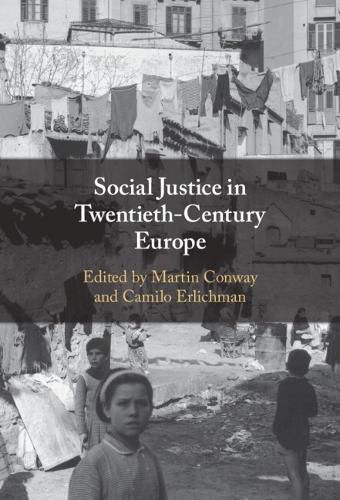Readings Newsletter
Become a Readings Member to make your shopping experience even easier.
Sign in or sign up for free!
You’re not far away from qualifying for FREE standard shipping within Australia
You’ve qualified for FREE standard shipping within Australia
The cart is loading…






Social justice has returned to the heart of political debate in present-day Europe. But what does it mean in different national histories and political regimes, and how has this changed over time? This book provides the first historical account of the evolution of notions of social justice across Europe since the late nineteenth century. Written by an international team of leading historians, the book analyses the often-divergent ways in which political movements, state institutions, intellectual groups, and social organisations have understood and sought to achieve social justice. Conceived as an emphatically European analysis covering both the eastern and western halves of the continent, Social Justice in Twentieth-Century Europe demonstrates that no political movement ever held exclusive ownership of the meaning of social justice. Conversely, its definition has always been strongly contested, between those who would define it in terms of equality of conditions, or of opportunity; the security provided by state authority, or the freedom of personal initiative; the individual rights of a liberal order, or the social solidarities of class, nation, confession, or Volk.
$9.00 standard shipping within Australia
FREE standard shipping within Australia for orders over $100.00
Express & International shipping calculated at checkout
Social justice has returned to the heart of political debate in present-day Europe. But what does it mean in different national histories and political regimes, and how has this changed over time? This book provides the first historical account of the evolution of notions of social justice across Europe since the late nineteenth century. Written by an international team of leading historians, the book analyses the often-divergent ways in which political movements, state institutions, intellectual groups, and social organisations have understood and sought to achieve social justice. Conceived as an emphatically European analysis covering both the eastern and western halves of the continent, Social Justice in Twentieth-Century Europe demonstrates that no political movement ever held exclusive ownership of the meaning of social justice. Conversely, its definition has always been strongly contested, between those who would define it in terms of equality of conditions, or of opportunity; the security provided by state authority, or the freedom of personal initiative; the individual rights of a liberal order, or the social solidarities of class, nation, confession, or Volk.